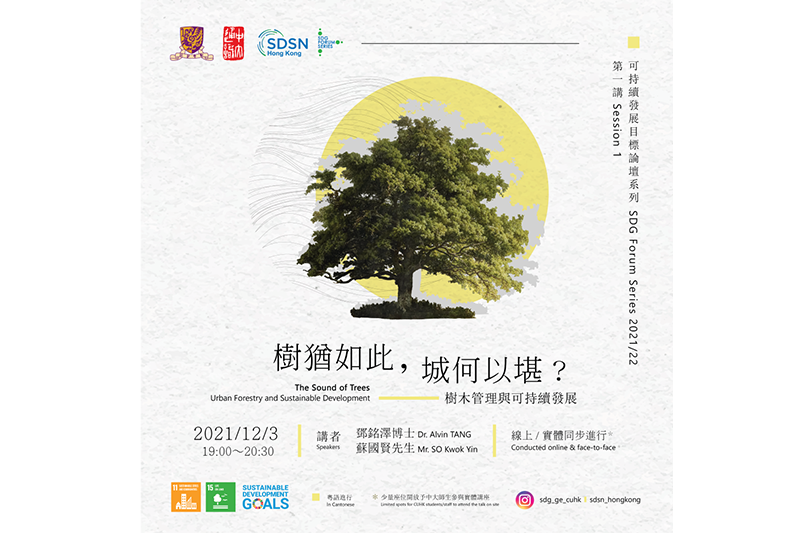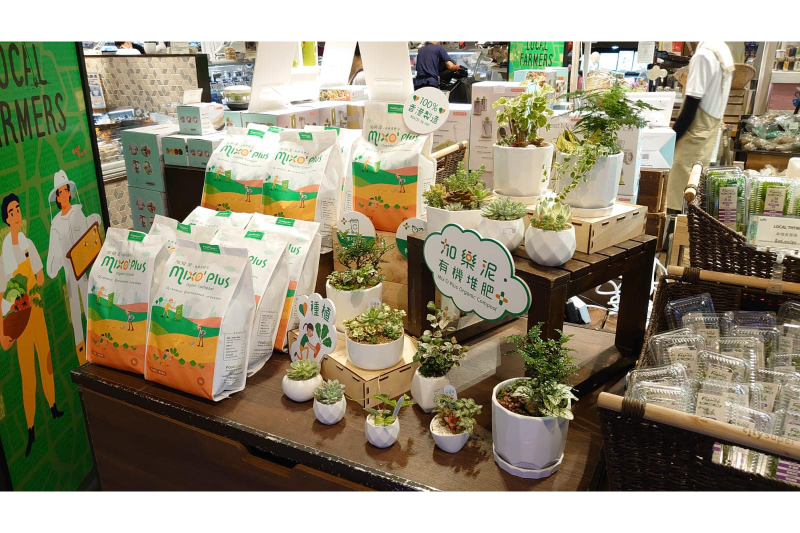SDG 15| Life on Land
Protect, restore and promote sustainable use of terrestrial ecosystems, sustainably manage forests, combat desertification, and halt and reverse land degradation and halt biodiversity loss
Urbanization has proved to be both a blessing and a curse. It has brought economic development to some areas and provided income to workers. However, it has also degraded the natural environment and resulted in a loss of biodiversity. CUHK does not turn a blind eye to these environmental problems, but actively protects species on campus and organizes programmes to foster a sustainable city growth.
Curriculum
12 related courses were offered in the 2021–22 academic year.
Policies
Under the Sustainable Procurement Policy and Sustainable Procurement Guidelines, no CUHK purchases may involve black moss, and the consumption of black moss is not allowed in meals served in restaurants on campus or at any activities either organized or paid for by the University.
Maintaining and extending campus biodiversity
The CUHK campus is home to over 200 plant species, including over a third of all tree species found in Hong Kong. It is also home to a wide variety of fauna. The trees on the CUHK campus are cared for by experienced staff in the Landscaping Section of the Estates Management Office, who provide routine irrigation, trimming, fertilizer application and pest control. The University cares for and protects the trees and preserves a green environment on campus, and takes reasonable and practicable measures to minimize the felling of and damage to trees in the course of campus development.
Over 130 bird species have been recorded on the CUHK campus, representing about a quarter of all bird species found in Hong Kong. The House Swift is the most well-known bird on campus. Over 200 swifts have built their nests under the concrete eaves of the University Library, and it is now home to the largest swift colony in Hong Kong. Mitigation measures were implemented by the University to protect the swifts during construction of the Library Extension project.
Educational programme on ecosystems
Hong Kong may be synonymous with skyscrapers, yet over 1.7 million trees have been planted in the urban areas. Urban forestry plays an important role in fostering the sustainable management of forests. An SDG forum entitled ‘The Sound of Trees – Urban Forestry and Sustainable Development’ was co-organized by the Office of University General Education and the Hong Kong Chapter of the United Nations’ Sustainable Development Solutions Network in December 2021. This forum highlighted the relationship between tree management and SDGs and gave examples of best practice to maintain sustainable urban forest management.

The Jockey Club ‘Field So Good’ Community Composting Program, led by Professor Chu Lee-man from the Institute of Environment, Energy and Sustainability, has produced a pioneering organic compost which uses local industrial food waste. This organic compost provides valuable nutrients and organic matter to the soil, which in turn promotes the growth of healthy plants, adds to the stock of beneficial microorganisms in the soil, and reduces the amount of food waste to be disposed of at the landfills in Hong Kong.

PREVIOUS
Life Below Water
SDG 14
NEXT
Peace, Justice and Strong Institutions
SDG 16
